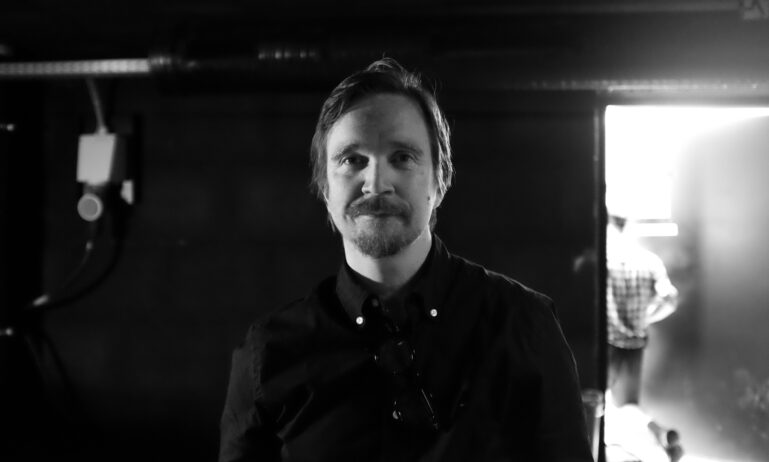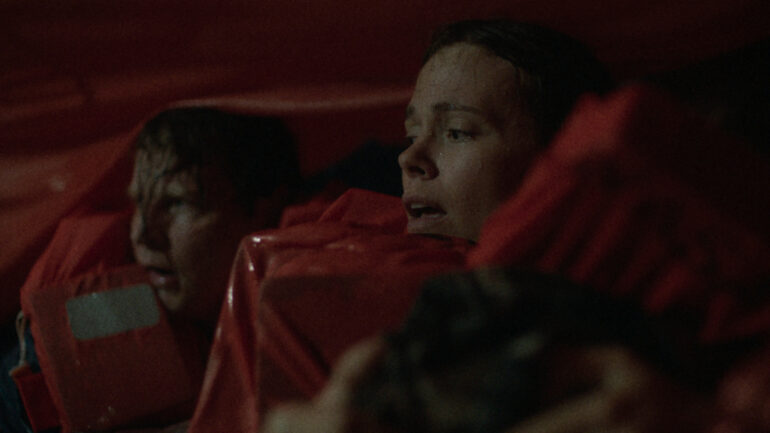WRITTEN BY: NFTVF
Creator Miikko Oikkonen discusses mastering many genres, international collaboration in tough times and fictionalising a Nordic trauma in the series Estonia.
Finnish director, showrunner and screenwriter Miikko Oikkonen is nominated for the Nordisk Film & TV Fond Prize 2024 for his 8-part series Estonia.
The winner of the award, which celebrates outstanding Nordic series writing, will be announced in Gothenburg on January 30th, 2024.
Estonia premiered on Finnish MTV and Swedish TV4 in mid-October, 2023. The series is written by Miikko Oikkonen, co-written by Sanna Reinumägi, Olli Suitiala and Tuomas Hakola, directed by Måns Månsson and Juuso Syrjä, and produced by Fisher King.
What was your route to scriptwriting and to mastering genres like fantasy, crime and drama, and do skills in different genres feed each other?
Even though I studied film directing in early 2000, I was already interested in television at the time. In 2009, producer Matti Halonen and I founded a production company with the aim of focusing on television drama. We sensed that TV was on the rise. Together, we visited channels to introduce ourselves, and tried to convince them that we could internationalise Finnish TV storytelling. One key aspect of this project was to create genre stories that could travel. Throughout my life, I had been a heavy consumer of series from around the world, and the ideas I pitched were all in different genres. We succeeded in selling a fantasy series to one channel, a medical thriller to another, and a detective series to a third. I quickly got the opportunity to work in truly different styles of series. After a 15-year short career, it feels like it has been a gift that not all writers have had the chance to experience.
What motivated you, and what helped you tackle and fictionalise the heavy Nordic trauma that Estonia deals with?
The Estonian disaster makes headlines every year, and I have regularly wondered if there could be a fictional perspective on the tragedy. When the 25th anniversary of the disaster approached, I examined reports and background material, but at that time, I couldn't figure out how to turn such a sensitive issue into drama. When MTV in Finland was looking for a so-called event series, the topic of the Estonia resurfaced. I returned to the material and discussed it with Swedish colleagues. It felt like the time might be right for such a series. We were in the midst of a pandemic, and, in fact, the vastly different pandemic measures in Finland and Sweden sparked the realisation of how Estonia could be turned into a fictional series. If through fiction we could show how various parties and individuals perceived the disaster, and how people tried to cope in the aftermath under different viewpoints, it could open up something that no documentary or article has been able to show. This multi- perspective narration was the key to the writing.
What underlying theme became the most important for you during the writing process?
Many want to ask from me what ultimately caused the MS Estonia to sink, but it was never a topic that the series aimed to resolve. A more interesting question was how a passenger ship could sink and take the lives of over 850 people, and no one is held accountable. In US, a class-action lawsuit would have been filed, in Japan, everyone involved would have resigned, but in the Nordic countries, no one has been held responsible to this day. How did this happen? The theme re-emerges throughout the series whenever someone wants to know what possible mistakes somebody else might have made. In the series, a Swedish commission member phrases this: "It’s not our task to blame anyone, but to calm the situation." This seems to be a very Nordic way to handle things, but it might also be the reason why so many of us still believe that the final report doesn’t give us answers to the reasons behind the accident.
Would you like to introduce your next project?
While working as a showrunner on the post-production of Estonia, I began writing the second season of Yle’s socio-political thriller series Helsinki Syndrome with a new team. This series, too, has drawn inspiration from real events of the 90s, this time from within the banking and legal spheres. The first season was a kidnapping drama, and the second season is going to be a fugitive thriller. Just now I’m in the edit room with the production, hoping that we can complete the season in the course of this spring, and that I may move on to develop something entirely new and different — something in terms of genre and content that I haven't had the opportunity to work on yet.
How did Fisher King collaborate with its Nordic partners, and how did the international collaboration inspire or affect the writing?
The MS Estonia disaster brought together three countries. The ship was jointly owned by Estonia and Sweden. The vessel bore the name of a new country on its side, and the majority of the victims were Swedish. The accident occurred in Finland’s territorial waters, and we had sold the ship to Estonia. Because the content was so strongly connected to three countries, it was clear from the beginning that all three countries had to be involved in the production, both in front of and behind the camera. We also wanted the series to be as credible and authentic as possible. That's why we wanted Swedish and Estonian writers to be part of the writing team. Their task was to make the content from their own countries appear as authentic as possible. How do people behave and speak? Collaboration, in my opinion, was the only way to tell this story correctly.
In the fall of 2023 the drama series industry faced a crisis: Has this affected what is now commissioned, and how?
Yes, we are in the midst of a crisis in the industry. The transformation that we could foresee did arrive much faster than I could have anticipated. The majority owner of our production company decided to shut down the company at the end of the last year. One possible reason for this might be the lack of trust in the future. As an example, one of the commissioning channels decided to postpone the next series production by a year. It looks like these coming years will be challenging. At the same time, we are all seeking insight into how drama creators could develop new ways and models that would enable the future. Despite the tough situation, I really believe there will continue to be a demand for good drama series after a few quieter years.
What could help Nordic creators the most in 2024?
A good and challenging question! I can understand that the commercial side reacts to the commercial situation, but I find it peculiar that even public channels are simultaneously reducing production volume and funding. The television drama business has been overheated in recent years, so unfortunately, a correction is now happening. However, why are those entities, which are not dependent on market trends, also cutting down on commissions? At least it would make sense to keep the project development going. It could keep the companies alive, and those who will need new content in forthcoming years could finally get content created with the desired amount of time, wouldn't they?
Official trailer:
Read more about Estonia and the other nominees: CLICK HERE.

